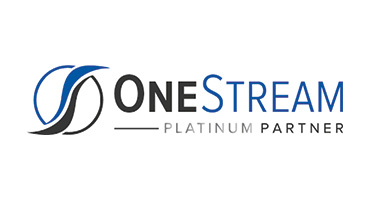The new lease accounting standard issued by FASB (ASC 842) has been labeled one of the most significant accounting changes ever.
At this time, approximately 400 of the S&P 500 companies have transitioned their lease accounting practices. According to a new study on the transition, these 400 companies have reported $503 billion in operating lease liabilities and $69 billion in finance lease liabilities.
The operating lease liability represents approximately 11 percent of total debt reported by corporations, which has had a significant impact on financial reporting results and performance management.
The comparability of results has been affected. Margins have slimmed. Performance management metrics have been skewed. Now, corporations are going back to the drawing board to evaluate how the lease accounting changes impact performance management to truly understand how their global units are performing.
4 Ways to Re-Evaluate Performance Management
Whether your corporation has already adopted ASC 842, is in the process of adopting the new lease accounting standard, or is still ramping up toward incorporating the lease accounting change, consider these methods to re-evaluate performance management in your business units.
Efficiency
Efficiency is one of the most affected aspects of performance management. Units that appeared to be productive and working efficiently may suddenly look less productive because of the way lease assets and liabilities are now accounted for.
For example, a manufacturing unit reported 34 percent operational efficiency in a given reporting period. Now, after accounting for manufacturing equipment that was previously not recorded as a lease liability, the unit shows 27 percent operational efficiency. Instead of being the top-ranked business unit in the corporation, now that unit has fallen a few spots.
Does that mean the unit is less productive or efficient? No. It simply means the metrics used in performance management need to be adjusted to evaluate the true productivity and efficiency of the unit.
Scope
Another important area of performance management to re-evaluate is the scope for each unit. In other words, re-defining expectations for each unit contributing to the overall success of the organization.
Some units will be affected more than others by the lease accounting changes. Performance expectations, metrics, and goals should be adjusted accordingly to reflect the changes. This way, each unit is positioned for success to achieve their objectives on the new playing field.
Goals
Similar to scope, the goals for each business unit should be re-evaluated. This is especially critical for business units that are the most affected by lease accounting changes.
For example, if a manufacturing unit did not record any lease liabilities before the ASC 842 transition, then the unit may be permanently affected by the change. It may become impossible for the unit to reach their previous productivity and financial performance marks. Now, they need new goals in a new environment.
Improvement
A fourth aspect of performance management to consider is establishing new improvement timetables for affected business units.
Some units may need more time than others to find their new normal and begin driving toward improvement. Then, once each unit finds their new normal, you can implement improvement tracking that aligns with the new accounting environment.
Use the transition period as an opportunity to “reset” performance management and tracking. Communicate to affected teams that you’re re-evaluating performance and if there were areas that were lagging prior to the ASC 842 transition, now is the time to address the issues. This way, you can start with a more clear view of expected performance and set new benchmarks for improvements.
Work with HollandParker on the Lease Accounting Changes
We understand the effect of the lease accounting changes on global corporations. With CPAs and other accounting specialists on our team, we can work with your company to strategize methods to better support performance management.

We also recommend utilizing the OneStream XF software platform to help manage the change and capture the impact on performance management.
As a Platinum OneStream implementation partner, we will help formulate and execute a gameplan that uses the OneStream software suite to track changes and optimize your global business units for their new accounting environment.
Contact us today to discuss the lease accounting changes and using OneStream to improve performance management related to the lease account changes.
